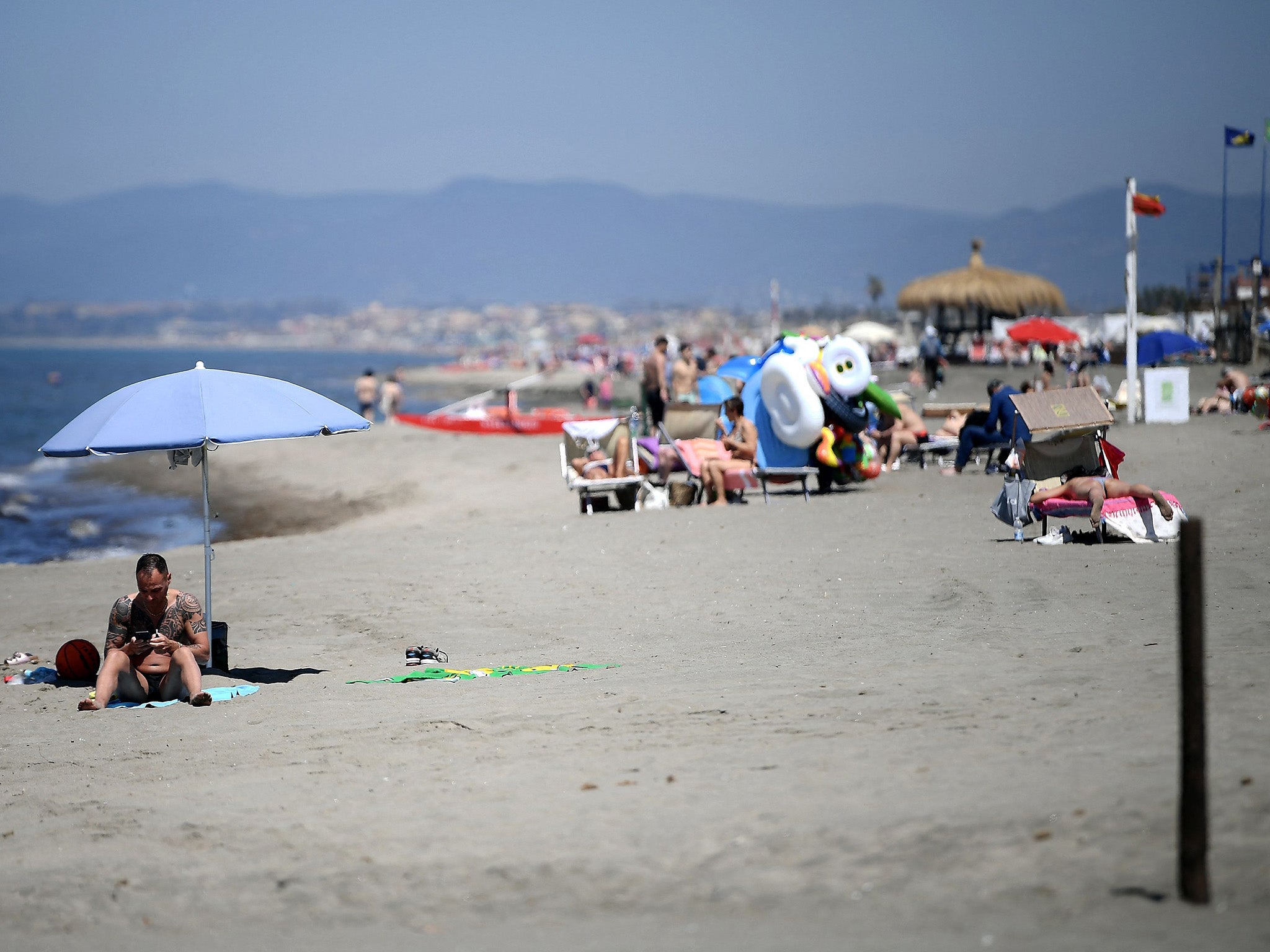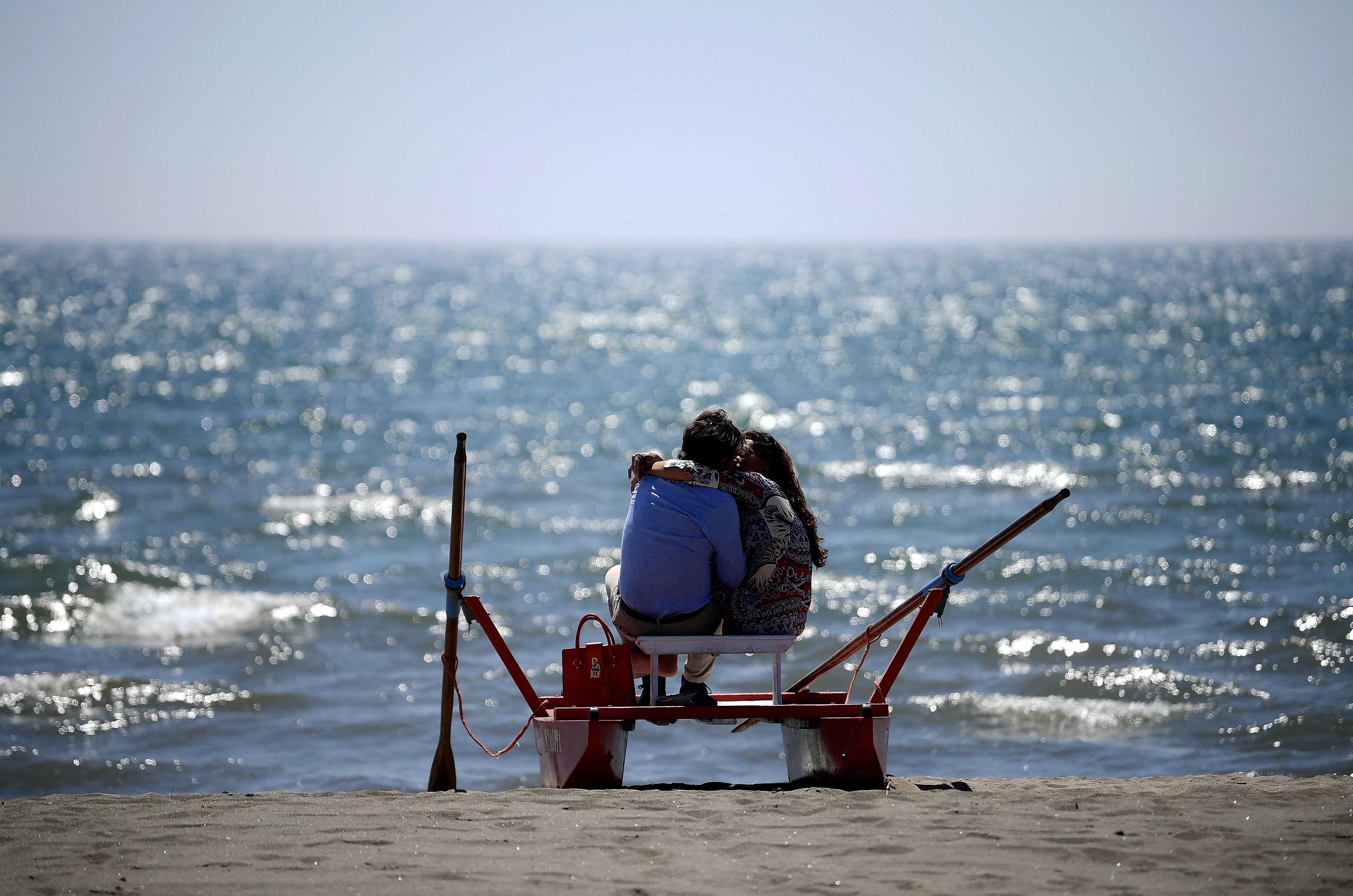A coast of living crisis: Italy’s private beaches cannot escape the age of austerity
Many of Italy’s beaches are in private hands and the cost of using them is going up as thousands flock to the seashore, reports Sofia Barbarani in Rome

The cost of living crisis has stretched all the way to the beach in Italy.
After a winter of austerity, many there are bracing themselves for hikes in holiday costs as privately managed beaches across Italy increase their rates for the summer, with some establishments charging more than a month’s rent for a dip in the sea.
A recent survey by the consumer defence association Altroconsumo found that there will be an increase of up to 18 per cent in the number of beach establishments managed by private businesses across Italy during the peak week of 31 July to 6 August.
Fee-paying beaches with tightly packed candy-cane parasols, loungers and other amenities have become commonplace across the Italian peninsula, with roughly 50 per cent of the country’s sandy shores leased by the government to private businesses.
Italy’s approximately 7,500 kilometres of beach are public domain and, although the state cannot sell the land, public authorities can give private individuals long-term concession contracts – the business is worth roughly €15bn (£12.9bn) a year, according to the Nomisma consultancy.
These licences are typically family controlled and passed down from generation to generation. In February the government announced plans to boost competition for contracts to manage beach facilities from 2024, after repeated requests from the European Commission for them to be put out to tender.
These beaches are decked out with restaurants, changing rooms, showers and even children’s playgrounds, so most Italians say they prefer the comfort of a private lido and its amenities over the more frugal public beach.

But for those looking to spend their summer on a free shore, finding a beach that hasn’t been taken over by armies of parasols and a hefty fee to go with it is no easy task.
Immobiliare.it, Italy’s leading real-estate portal, found that in the popular summer destination of Alassio in the north of Italy, a typical four-week beach break can cost almost €1,300, almost twice as much as the average €740 for a small apartment in the same area.
In the southern coastal town of Gallipoli the average monthly rent for a two-bedroom apartment is as low as €363, versus the €700 for a month of loungers and parasols.
According to Altroconsumo, the regions with the largest number of private beaches are Liguria and Emilia-Romagna in the north and Campania in the south, with 70 per cent of their sandy beaches granted by the local authority to individuals.
The problem, according to the environmental association Legambiente, is that there is no countrywide rule that sets a limit on how much beach area can be loaned by a government to a private person. Decisions are therefore down to the local governments and are often based on political ambitions.
In the southern Puglia region, for example, a regional law from 2006 allows for no more than 40 per cent of the beaches to be leased to private individuals, with the remaining 60 per cent for public use.
On Tuesday, Italy’s health ministry warned Italians of a third heatwave – the hottest one this year. Sixteen cities have been put on red or amber alert as temperatures in cities such as Bologna and Torino are expected to hit 40C or more.
And as temperatures begin to soar and children become restless in the city, Italian families have started planning their summer escapes, only to come up against impossible costs.
But while Italians say they expected this year’s holiday prices to go up because of the general hike in living costs, including electricity and gas, more than half of those surveyed said they did not foresee an improvement in the services.
Critics have also called out the low rents being paid to the government by the private individuals, with just 21,581 out of the 26,689 paying €2,500 a year to the state to rent out a piece of shore – a very low number when compared with what beachgoers are charged.
Even the Italian businessman Flavio Briatore, former part-owner of Queens Park Rangers Football Club in London, argued in an interview with newspaper Corriere Della Sera that state fees for private beaches should be increased.
According to Briatore, whose exclusive Twiga beach club charges beachgoers up to €1,000 a day, the state shouldn’t charge less than an annual fee of €100,000 and not the €17,169 that he pays on a yearly basis to keep his business running.
Since early June Italians have been taking to social media to vent their frustration and anger at the impossible prices.

Italian freelance journalist Alessio Turazza called for a ban on all private beaches. “Only free beaches. Enough with the concessions and the facilities that have destroyed the shoreline,” she said.
“These increases are fake and use war and inflation as alibis. The government needs to intervene…” wrote a social media user on Twitter.
Another Twitter user called for the licences to be taken away, saying: “The beaches and the sea are a public good”.






Join our commenting forum
Join thought-provoking conversations, follow other Independent readers and see their replies
Comments